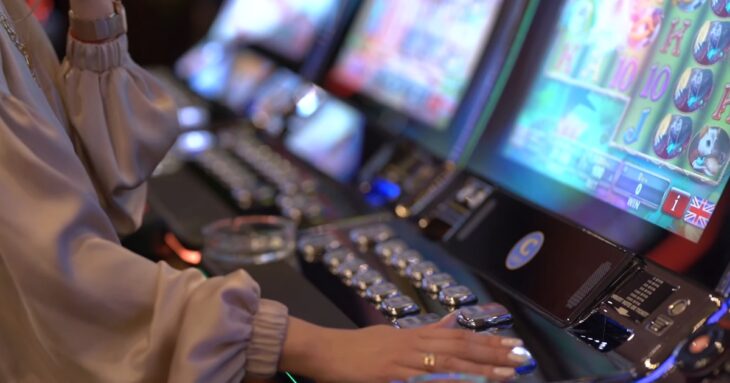The relationship between financial market outcomes and gambling behaviors is a complex interplay that has garnered attention within the realm of behavioral finance. When observing the fluctuations of financial markets, it’s noticed that market outcomes can have an impact on individuals’ willingness to engage in gambling activities.
While at first glance the stock market and a casino might seem worlds apart, they share a common thread in the thrill of the unknown and the potential for financial gain. The stocks’ traders and gamblers often follow similar behavior patterns and stimuli, driven by perceived opportunities for high returns.
The decisions made by gamblers can also be affected by their observed or experienced outcomes in the financial markets. Let’s see how this is possible.
Table of Contents
ToggleKey Takeaways:
- Market performance can influence individuals’ gambling behavior through perceived changes in wealth.
- Trading and gambling share common behavioral patterns stimulated by opportunities for gain.
- Financial outcomes can affect gamblers’ decisions, reflecting the psychological impact of market activity.
Does It Have an Impact?

As a reader interested in the intricacies of behavioral finance, you’ll find that fluctuations in financial markets are mirrored in gambling behaviors.
Behavioral Finance and Gambling Sentiment
You are likely aware that behavioral finance studies the psychological influences on investors. Gamblers’ sentiments in financial markets can resemble those of traders, with trading activity often being fueled by similar impulses that drive gambling behavior.
Your participation in the stock market can be affected by emotional biases and overconfidence, which are also seen in your approach to gambling, such as sports betting. This crossover has led to the recognition of trading as a form of gambling, where you may seek a thrill equivalent to that of racetrack gambling.
Economic Indicators
When exploring how financial markets affect your gambling behavior, it’s vital to consider economic indicators. A rise in stock market returns may leave you with a larger disposable income, often resulting in higher aggregate gambling expenditures.
This is known as the wealth effect, where you feel wealthier and more inclined to allocate money towards entertainment goods like gambling. Conversely, during volatile market conditions, you might find a similar thrill in the unpredictability of gambling, much like the uncertainties encountered in trading.
Financial Markets and Betting Volume
Research indicates a correlation between market outcomes and the volume of gambling. Financial markets can sway your decision-making processes in activities such as horse wagering and casino gambling.
For instance, when there’s an uptick in the market, data gathered from horse wagering data may show a significant rise in betting volume.
This is not just limited to racetrack gambling but also extends to other forms of gambling markets. Thus, the state of financial markets can be a potent factor in shaping your overall gambling demand and gambling behavior.
Similarities Between Trading and Gambling

Both trading and gambling involve understanding risks and making decisions that could lead to financial gain or loss. Your knowledge of the markets or games, as well as your psychological makeup, can greatly influence your success rate in either field.
Psychological Aspects of Trading and Gambling
In both trading and gambling, emotions can run high, and the psychological impact on your decision-making can be significant. Sensation-seeking and overconfidence are traits common in both traders and gamblers, often leading to riskier bets or trades.
You may seek the thrill of a quick win, which can lead to impromptu decisions in the stock market or at the gambling table. The allure of skewed payouts—large returns on a small investment—can also distort your perception of risk and potential gains.
Day Trading and Sports Betting
The excitement of day trading and sports betting is rooted in their fast-paced environments. Transactions and bets can be completed within short time frames, elevating the thrill and entertainment value for you, akin to a more interactive form of entertainment.
You may experience similar highs from successful trades and winning bets, with trading volume increasing as a result of individual investors’ quest for these experiences. This can lead to a rise in trading as entertainment, blending the lines between financial decision-making and seeking excitement. If you are interested in taking a look at a website where you can take part in sports betting visit GemBet.
Financial Trading as Entertainment
The idea of financial trading as entertainment has gained traction among individual investors, who might view the stock market as akin to a casino. While seeking the sensation of a financial thrill, your involvement in trading may be driven by investor sentiment as much as by traditional analysis.
The stock market offers an array of choices, much like a gambling platform, with some equities labeled “lottery stocks” due to their high-risk, high-reward profile. Your pursuit of entertainment through trading can influence market dynamics, but unlike a casino, the stock market doesn’t always provide immediate outcomes.
Outcomes Influencing Gamblers’ Decisions

When you consider engaging in gambling activities, the state of financial markets can have a notable impact on your decision-making process. Developments in stock returns or market volatility may shape your risk appetite and direct your moves towards or away from betting environments.
Wealth Effect and Risk-Taking
The wealth effect refers to the propensity for you to spend more as the value of your assets rises. Specifically, when the stock market experiences a wealth effect, it can lead to an increase in gambling as you perceive a higher disposable income available for entertainment. A boost in your stock portfolio might encourage greater risk-taking at online casinos or in-state lotteries.
Market Volatility and Gambling Patterns
Rising market volatility often sparks a thrill that can draw you towards the markets or gambling activities.
As equity markets demonstrate significant price swings, you may be similarly attracted to the potential for high payouts in gambling ventures. Observing this, policymakers and businesses may adjust the availability of competing betting products to capture the shifts in gambling patterns.
Influence of Policy and Medium
Your gambling habits can also be influenced by the strategies and regulations set by policymakers as well as the platforms through which you gamble. The widening spread in corporate bond spreads could alter your perceived risk, driving you towards or away from betting.
Meanwhile, the accessibility of gambling through online casinos versus traditional avenues plays a vital role; regulation changes or the availability of competing betting products may decisively alter where and how you place your bets.
FAQs
How are the stock market and gambling similar?
Your curiosity about the connection between stocks and gambling is justified by their shared characteristics of risk and uncertainty. In both arenas, you participate in the chance of gaining or losing money based on outcomes that are not entirely predictable.
Does gambling increase during a recession?
Your concerns about gambling trends during economic downturns are valid, as it’s observed that the stress and financial strain of a recession can lead to an increase in gambling, with individuals seeking quick financial gains or escapism through betting.
What role do economic indicators play in gambling risk management strategies?
Your approach to gambling risk management should consider economic indicators, as they signal the health of the economy and can influence gambling behaviors. For instance, a robust economic outlook might encourage higher bets, while a downturn can lead to more conservative gambling.
The Bottom Line

Your understanding of the relationship between financial markets and gambling behavior should be enhanced by the empirical findings discussed earlier.
Realized stock returns have a direct correlation with gambling expenditures due to the wealth effect—that is, when you experience financial gains, your willingness to spend on entertainment, such as gambling, tends to increase.
Rising market volatility appears to mirror the excitement sought by gamblers, drawing them towards both the financial markets and gambling arenas. The fluctuations in the financial markets could stimulate behaviors akin to gambling, potentially increasing your propensity to gamble.



